When people think of support in the classroom, they usually think of support for students who struggle to learn, but the students on the other end who find learning easy also need support. Yutan’s new HAL program for grades three through eight is aiming to help these students who are getting done with work quickly and need the extra challenge.
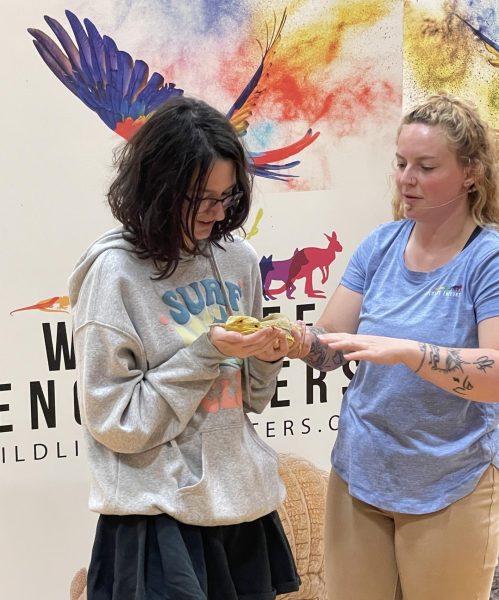
“HAL stands for a high-ability learner. HAL is interchangeable with gifted and talented students…It just means that students who have high intellectual abilities in one or more areas, including math, English and science. They could have high abilities in creative fields like visual arts or theatrical arts,” English teacher and middle school HAL coordinator Nealy Freeman said.
Because HAL is for the more advanced students, they have to get a certain percentage on the Nebraska Student-Centered Assessment System (NSCAS) assessment to qualify.
“Students are automatically in HAL if they scored 95 percentile or higher on the fall NSCAS assessment in either language arts or math. If they were in the 75-94 percent range, then they did another screener and could verify that way,” fourth grade teacher Sara Cooper said.
To better serve these HAL students, Freeman and Cooper are completing training offered by Dr. Kristen Job. Third grade teacher Alyssa Erwin, fifth grade teacher Andy Timm and special education teacher Alissa Andersen are also completing the training, which is offered through a grant program with Yutan’s educational service unit (ESU).
“The ESU assigned us our own HAL coordinator (Dr. Kristen Job) who is incredible, along with training sessions this fall and classroom visits and ready-made resources to support our students,” Cooper said.
During these training sessions, the teachers would learn why helping HAL kids is important.
“The PD days offered training on why meeting the developmental needs of our HAL kids is important as well as easy-to-implement ideas that we could roll out for them in the classroom,” Cooper said.
Freeman’s HAL training looks a bit different.
“I’m doing classes, college classes. Right now, I’m taking an additional 18 credit hours, which is half a master’s degree, to learn how to serve high-ability learners and facilitate a program,” Freeman said.
With training and taking new classes come some challenges in implementing the program.
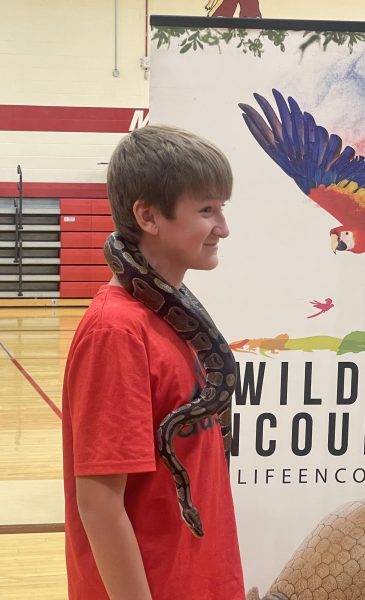
“Some challenges are following all of the new guidelines that the grant has. Some students who qualified for HAL with the old way in the past did not qualify with the new way. We sent letters and communicated that with students and parents that did not qualify; that was difficult,” Andersen said.
The teachers believe that the challenges are worth it, however, because the benefits are much more important.
“The benefits are very similar to how we would treat our students that have IEPs. So we provide services and differentiation for them to achieve at greater levels, with the goal that they would become experts in their preferred field. In addition to social and emotional learning, [we are] providing opportunities for them to practice skills that they have in ways that they haven’t been able to before,” Freeman said.
The training, benefits and challenges that the Yutan HAL teachers are facing are also changing their view in the classroom.
“It changes a lot of things for me in recognizing the behaviors and aspects of a high ability student. I think we all as teachers need to know about our students who have special needs and provide them with opportunities to grow and learn along with all the other students. Because if they are not learning in my classroom because they already know the content, then I need to be providing them content that they don’t know so they can learn,” Freeman said.
While the classroom changes may take longer to implement full-scale, for now the students who have qualified for HAL have the opportunity to grow their education by working with gifted students from other schools at “special ops” events offered throughout the year.
“I think the students love that they get to go on special ops and be with other gifted students. In a rural community, a gifted student might be used to being ‘the smartest’ but when they’re put in a room full of other gifted students, they are challenged in a different way!” Cooper said.
Two of the “special ops” the students have had the opportunity to participate in so far this year were going to Mead to see Wildlife Encounters and having a debate in Fremont.
“The Wildlife Encounters talked and showed different reptiles and mammals, mostly ones that are not from the U.S. They also talked about how the different animals survive in their habitats,” seventh grader Clara Tasich said.
Some students even had the chance to get up close and personal with these animals.
“They (Wildlife Encounters) would pick two volunteers so they could hold an animal. I got to hold a snake around my neck, and I was excited but still scared. Everyone also got to pet a baby kangaroo,” eighth grader Lucas Hoffart said.
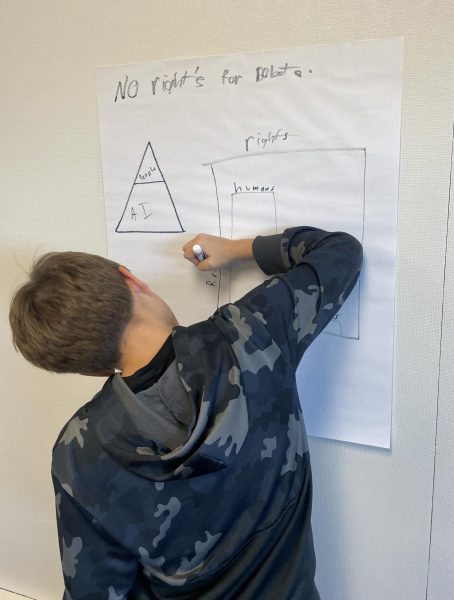
While all HAL students in grades 3-8 attended the Wildlife Encounters in Mead, only two middle school students chose to attend the debate in Fremont.
“The debate was fun and really engaging. It was about how droids in Star Wars relate to real life AI and how it could be dangerous. There were four different section debates (empire, rebels, Jedi and scoundrels). They all wanted money any way they could get it even if it involved stealing or crime. We shared our ideas, which was fun in a way that no one has bragging rights and we get to share our ideas,” eighth grader Logan Maloy said.
Because of the successful start, the teachers and students are hoping to keep the HAL program going and help support Yutan’s more advanced students.
“I do think that there’s things in place that will allow the program to continue indefinitely, as long as we have someone who is passionate about it, even if it’s not me. I also hope that it will be more classroom focused so our students can learn a lot more,” Freeman said.


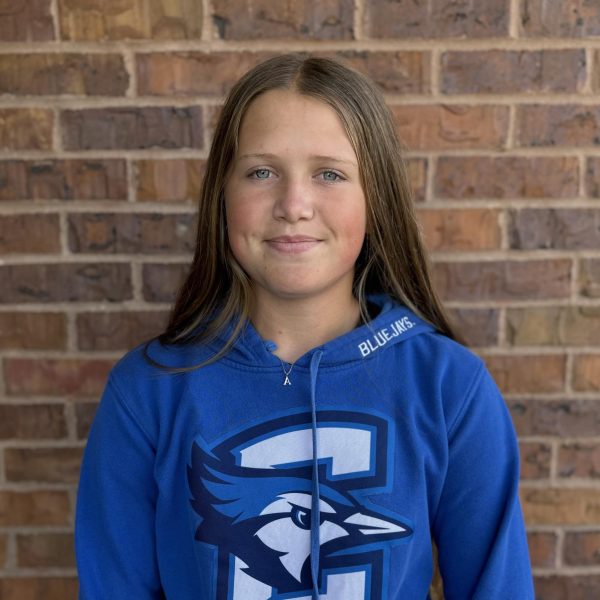
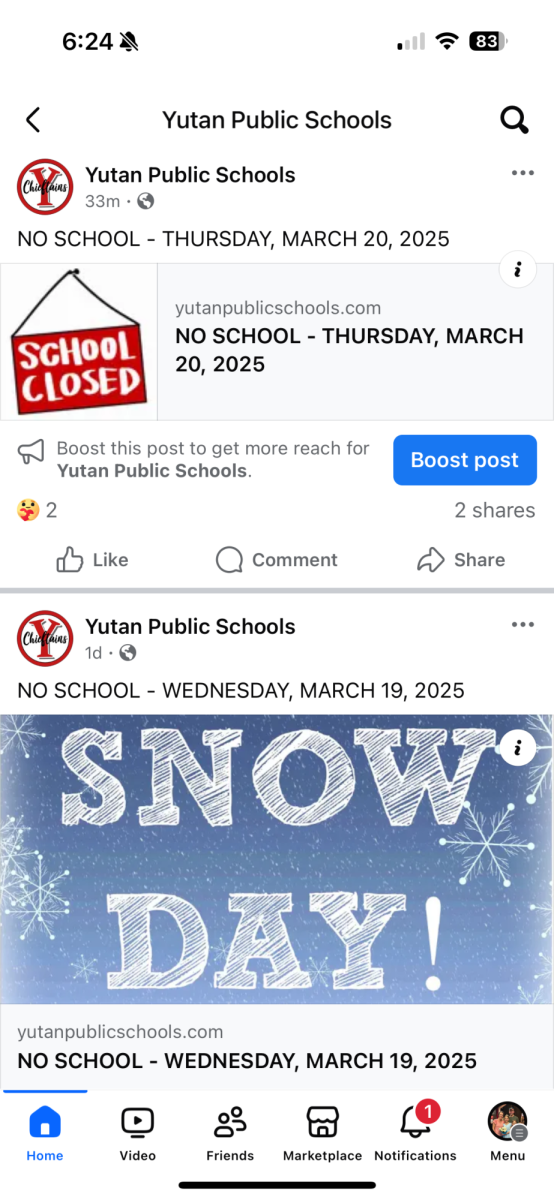

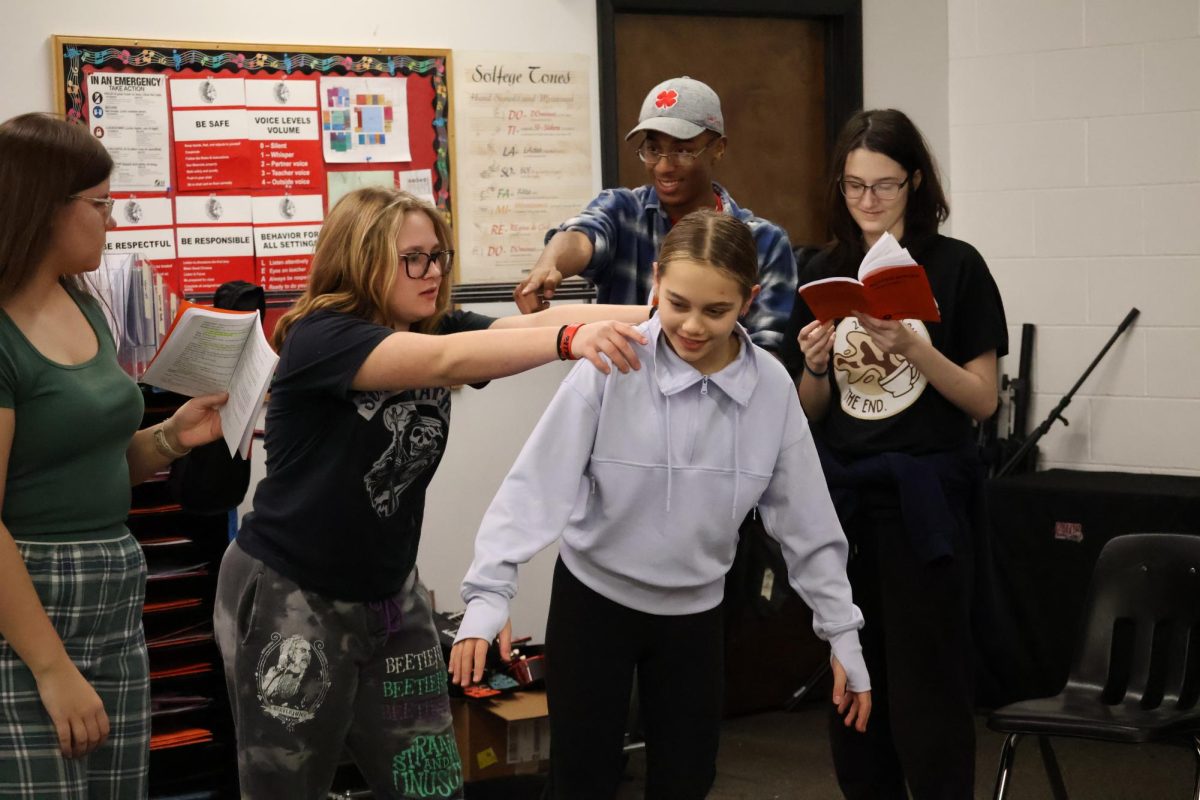
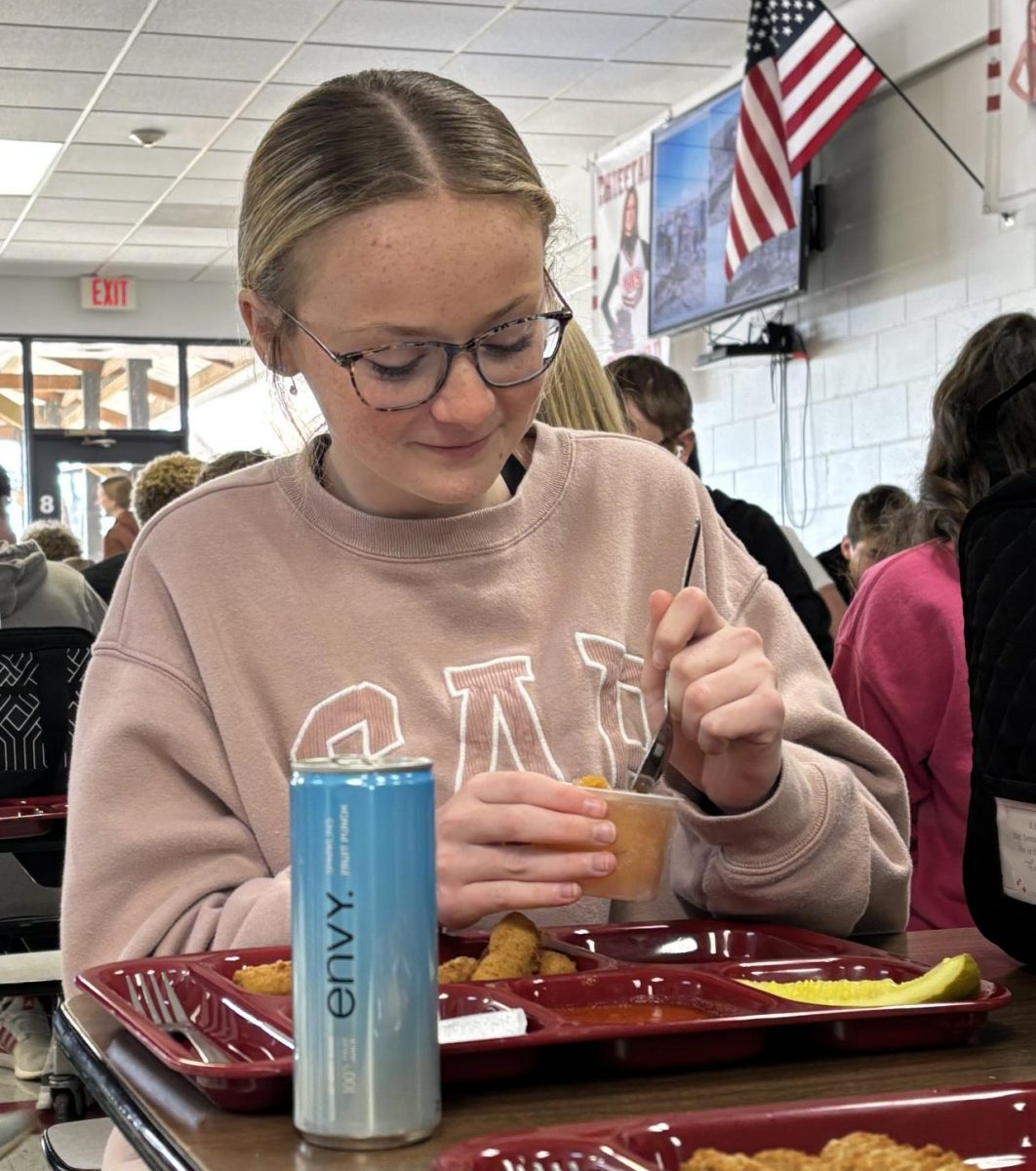
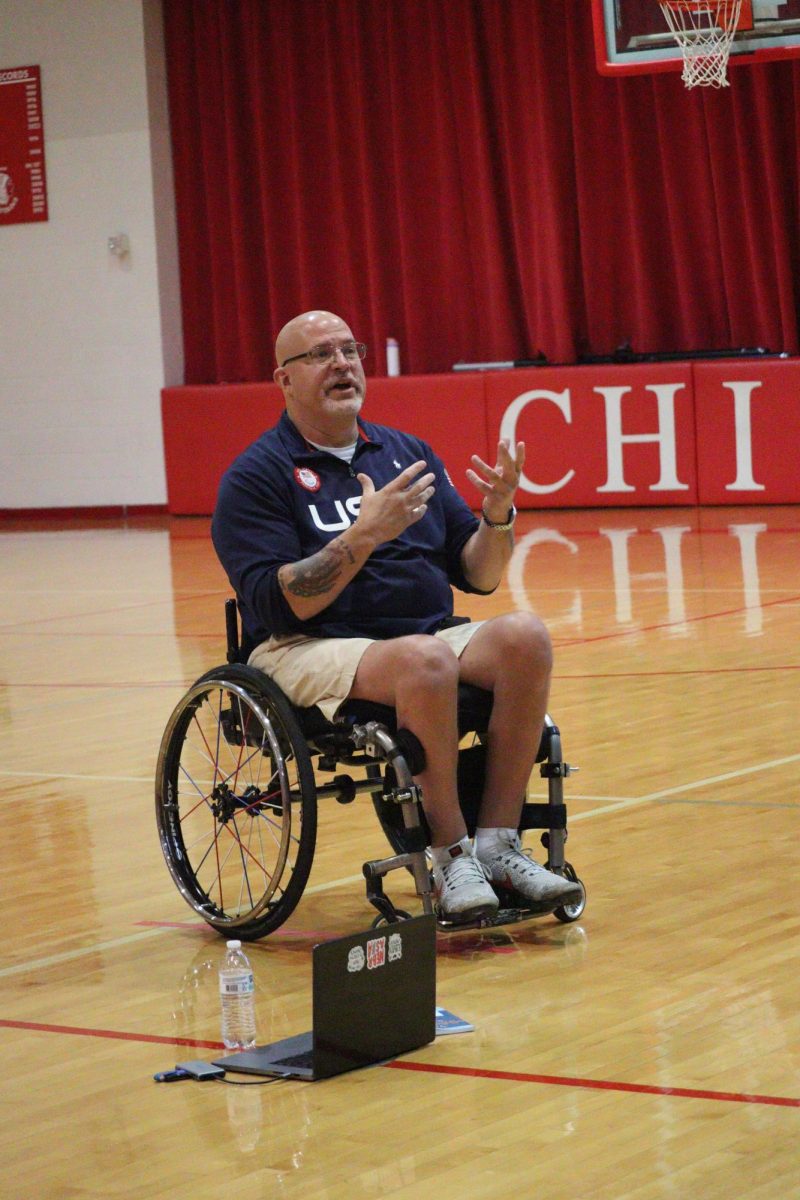
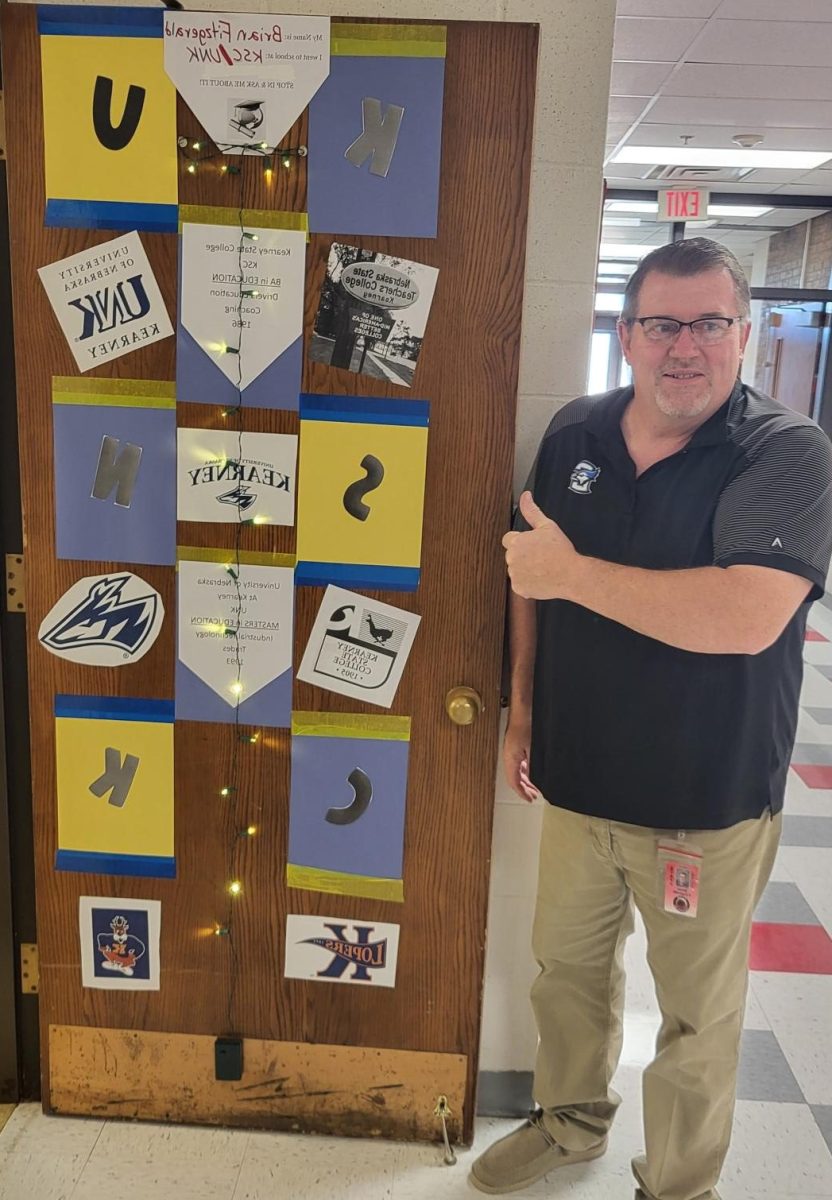
Dave M • Dec 10, 2024 at 3:17 pm
Great research, reporting, and writing!